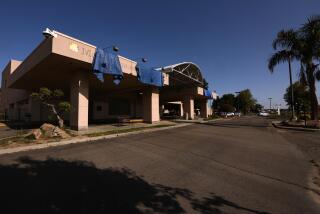Health-Care Dollars, Ethics
- Share via
The addition of Hoag Memorial Hospital Presbyterian’s new heart transplant program (Feb. 18) provides an opportunity for the Orange County community to examine the myriad of ethical, legal and financial issues in health care policies and practices.
Hoag Hospital is deservedly considered one of the finest in the county, and so it concerns me to learn that it was not the hospital’s initial aim to start a transplant program but that the decision was made to accommodate Drs. Aidam Raney and Douglas Zusman’s conditions of employment.
It is disturbing to consider how this and many other health-care decisions are made by institutions seemingly without comprehensive planning, which addresses such broader questions as whether we are getting the most health for our health-care dollars.
For example, the United States now ranks highest among the 20 leading industrialized nations of the world in infant death rates (Times, Feb. 20). In Orange County in 1986, an estimated 2,000 women received inadequate prenatal care.
At the same time, my tax bill is increasing to pay for the care of low-birth-weight infants in neonatal intensive care units. We are certainly not buying more health for the community with policy making that focuses excessively on high-tech care.
More than 35 million Americans have no health insurance or inadequate health insurance. Most of these people are working; many are children, students, widows or those with chronic illnesses who cannot get health insurance.
While I don’t believe that we have the resources to provide everyone with everything, I do believe that if the public were more involved in the decision-making process, our health care resources would be more fairly rationed than they are now.
In talking about the heart transplant program at Hoag, one hospital official said: “people love the high-tech appeal.”
Through my role with California Health Decisions, I have had the opportunity to hear thousands of Orange County residents discuss their health care concerns. Repeatedly, people have expressed their frustrations with a system that can provide limitless technological interventions--yet cannot meet their basic needs. It is time to shrink the gap between the public and the policy makers, and take a long hard look at where and how we are choosing to spend our health-care dollar.
ELLEN B. SEVERONI
South Laguna
Severoni is executive director of California Health Decisions.
More to Read
Sign up for Essential California
The most important California stories and recommendations in your inbox every morning.
You may occasionally receive promotional content from the Los Angeles Times.













